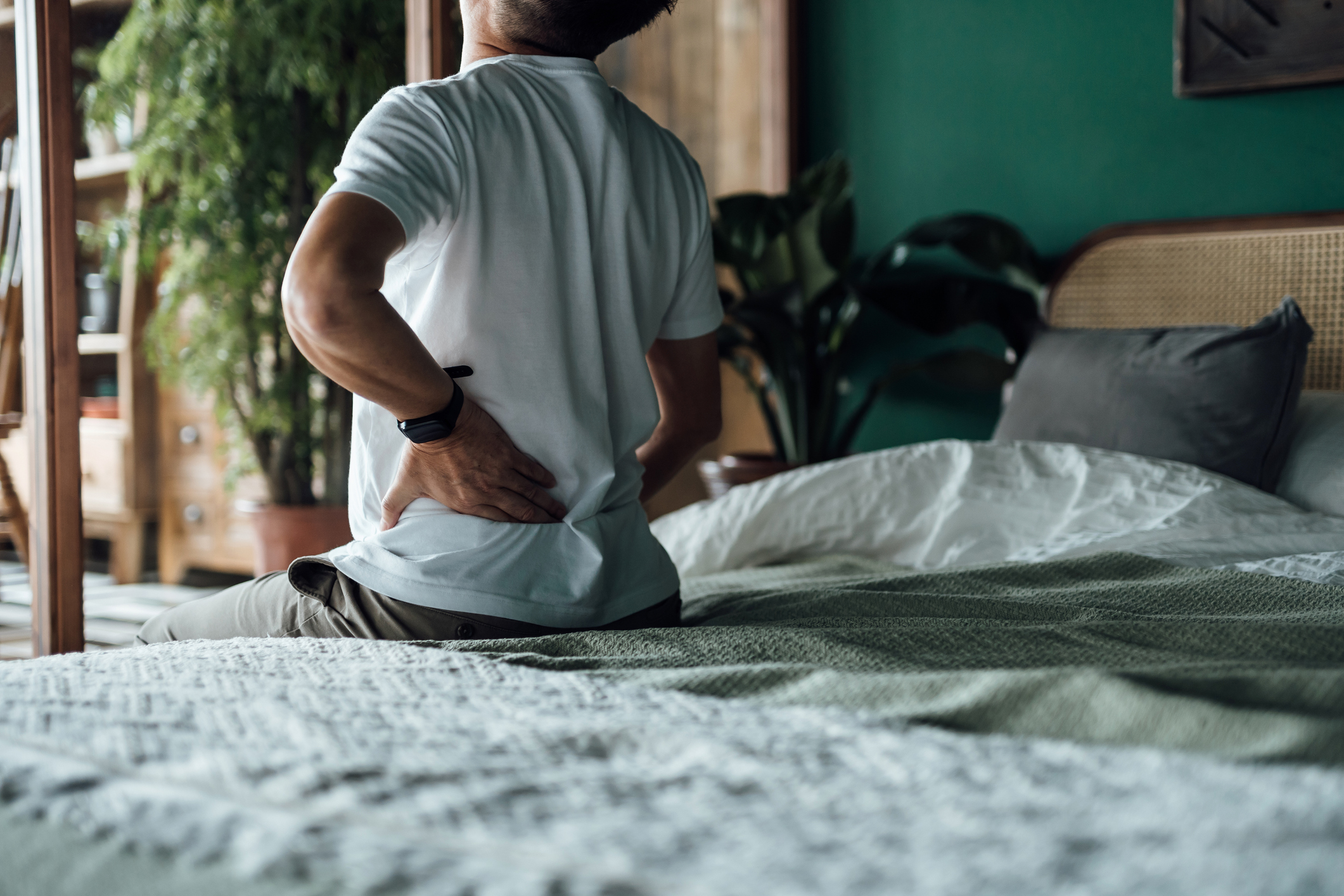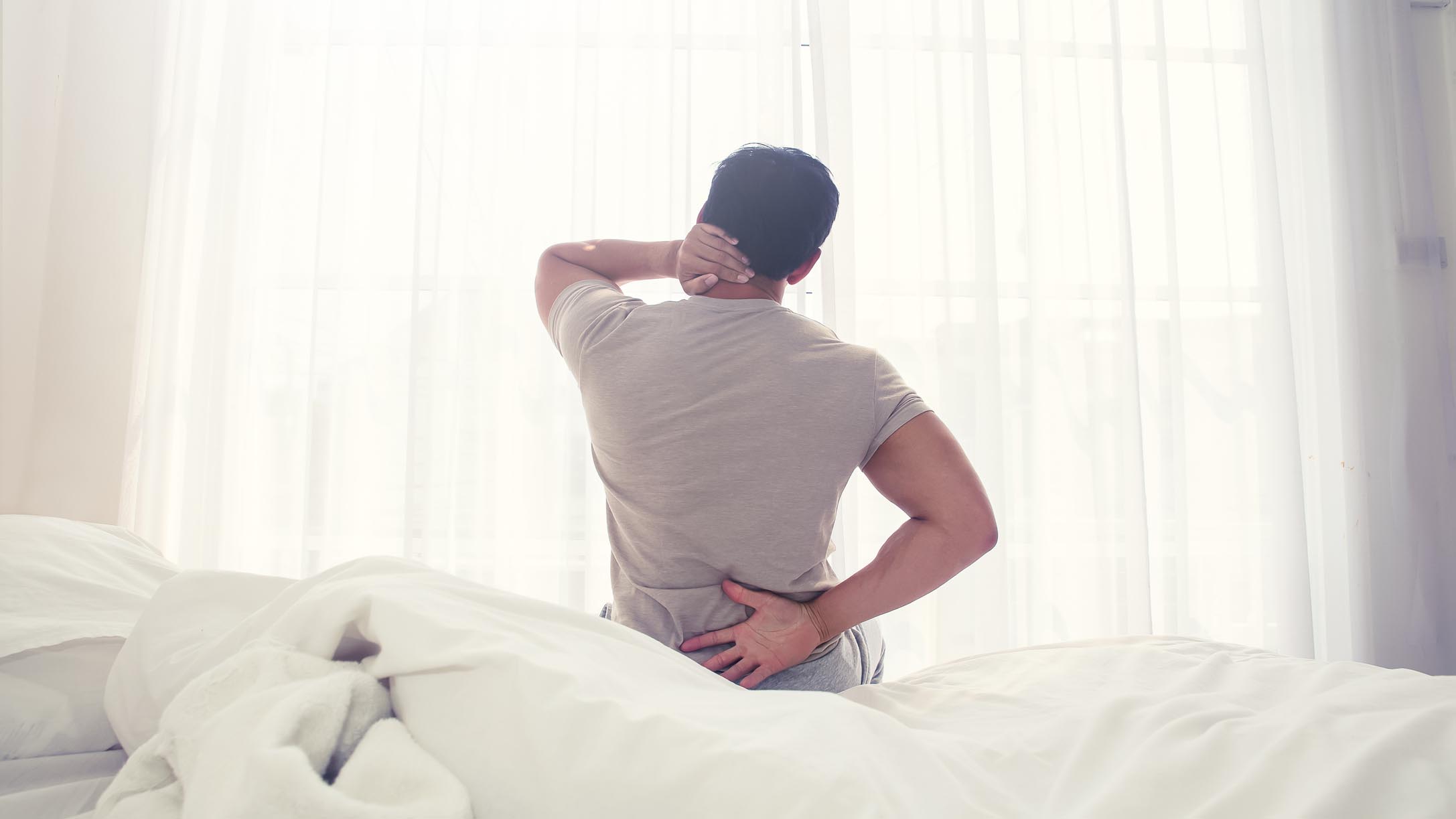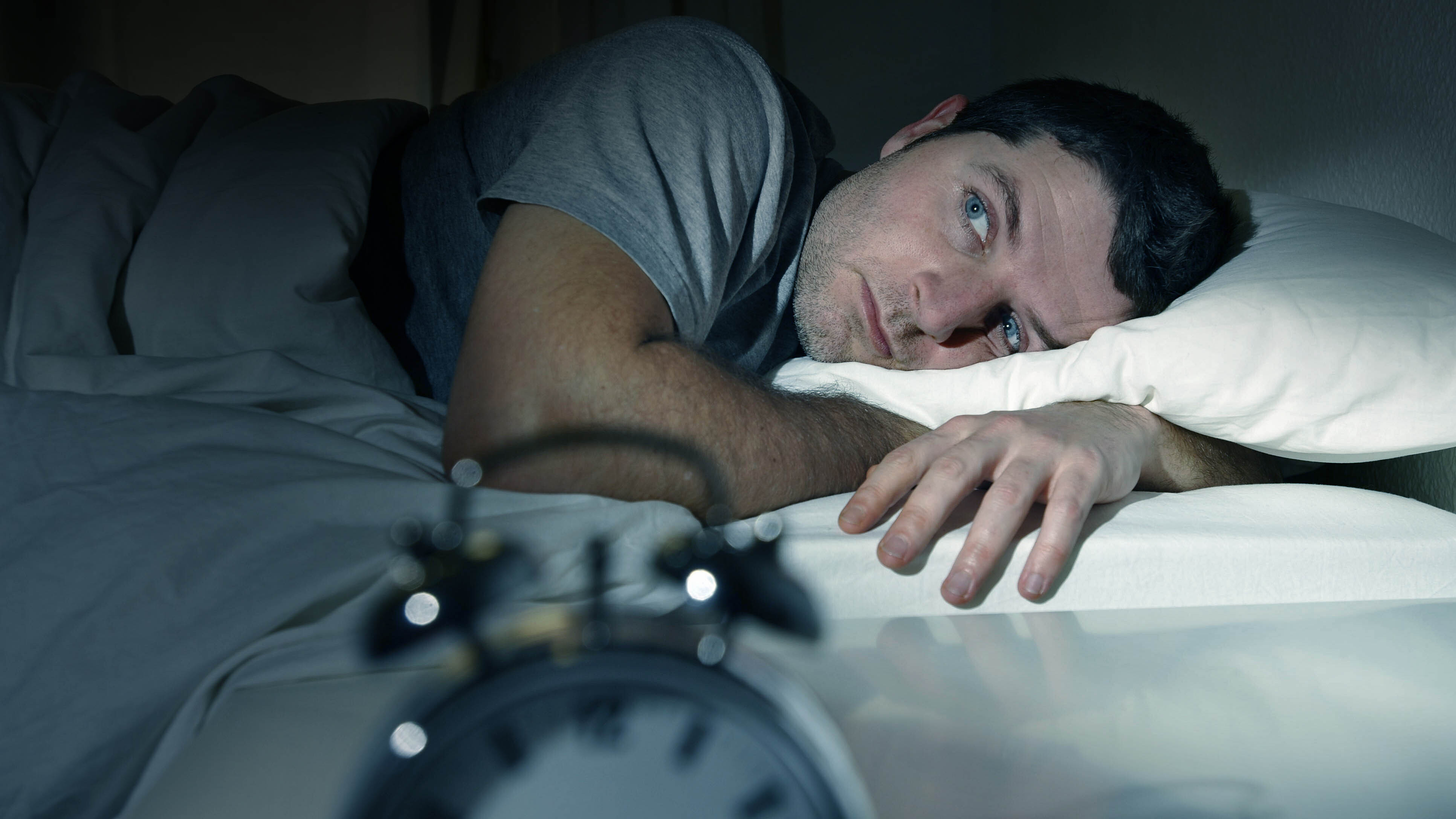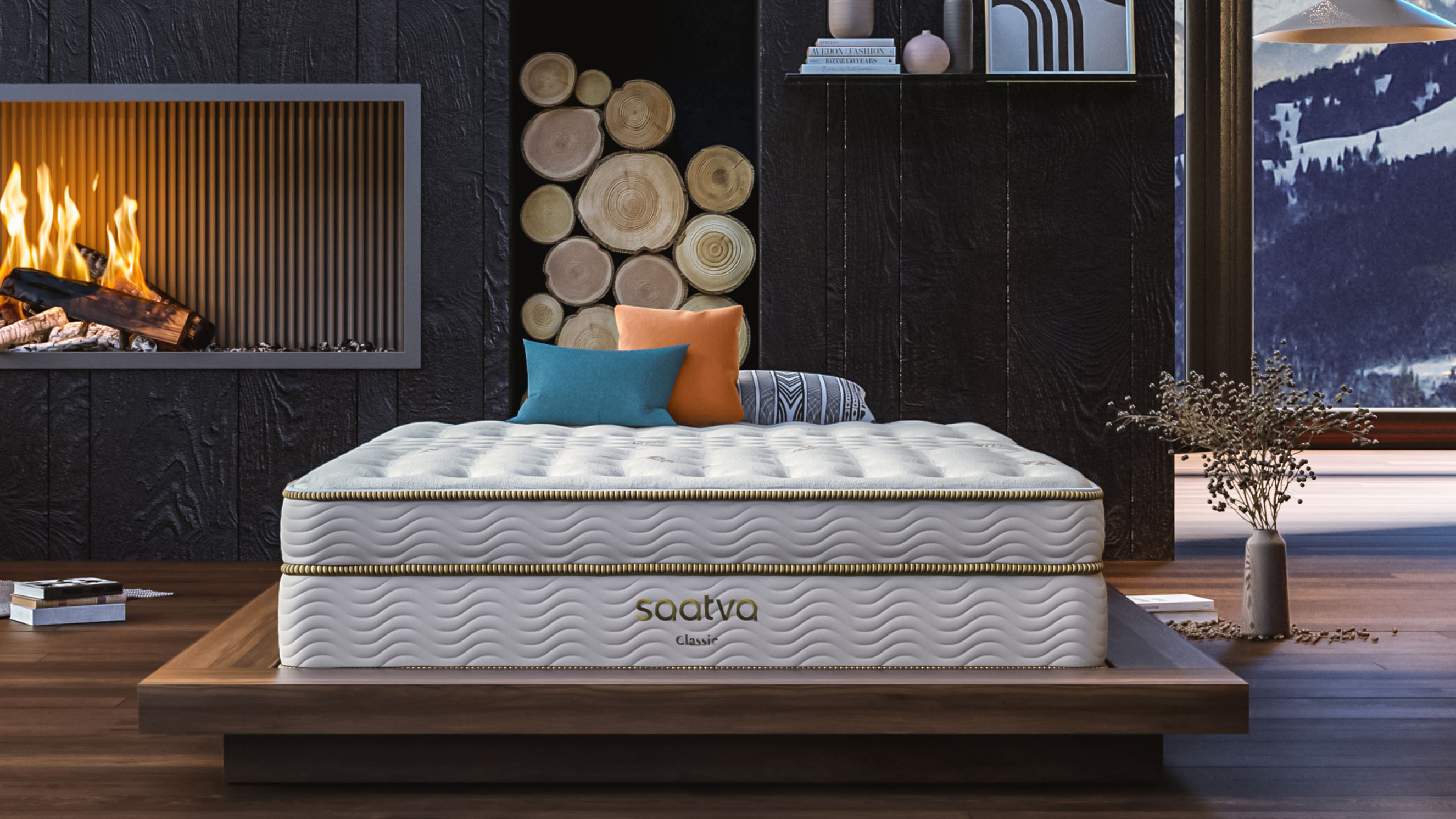
Back pain is one of the biggest disruptors of our sleep, with what seems like every movement punctuated by a painful jolt to the lumbar. If you constantly struggle to get comfortable during the night only to wake up with new aches and pains in the morning, you might be wondering, can. mattress cause back pain?
Even the best mattresses don’t last forever, but establishing if your existing mattress is behind your back pain requires paying attention to both your body and your sleeping style. Fortunately, there are various signs to look out for, such as the age of your mattress as well as the type of back pain you’re experiencing.
Good sleep is vitally important to our overall health and wellbeing, so it’s important you’re getting the best night’s rest possible. What’s more, insufficient sleep means less recovery, which will only aggravate any aches and pains. Establishing if your mattress is behind your back pain will make it easier to take steps to replace it (take a look at our best mattress for back pain guide) and start improving both your sleep quality and back pain. So, could your mattress be causing your back pain? We put that question to osteopath Taena Hutton, the owner of Chesham Osteopathic Clinic in the UK. Let’s find out...
Can a mattress cause back pain?
“The short answer is yes,” explains Hutton. “This is down to lack of support protecting the joints while you’re asleep and not moving for several hours. Our bodies need the support and protection while we’re asleep — if you don’t have this, you will be very stiff and achy when you wake up.”
According to Hutton, if you don’t have the correct support for ligaments, joints and muscles while you’re lying in one position, you will wake with pain. Common culprits of an unsupportive mattress include having an old mattress, or having a mattress that is wrong for your sleeping position. “The most common areas where we see issues in people are the lower back, mid back and hips. So we’ll see people with low back pain, thoracic mid back pain and hip pain from lying on their sides. We question patients on their lifestyles but if there’s no trauma or underlying conditions, we’ll look at the mattress.”

Hutton explains that patients whose mattresses are causing back pain will present with stiff achy pain that’s worse in the mornings. “They’ll feel pain when they get up, but this will then fade away. And they will often complain of disturbed sleep and struggling to get comfortable. We can fix them, but the issues will just keep reoccurring if the mattress isn’t replaced.”
5 signs your mattress is causing back pain
1. Your back pain is worse in the mornings
If it’s a struggle to get out of bed in the morning because of back pain, but tends to fade throughout the course of the day, your mattress is most probably the culprit. Back pain caused by your mattress will gradually improve during the day and you won’t experience that pain or soreness at any other time.
If your mattress is uncomfortable your joints are under constant stress and your body isn’t able to relax and recharge fully overnight. This then leads to pain when you wake up.
2. You’re waking up frequently through the night
Although waking during the night is fairly common, with around 35% of people waking up in the night several times a week, it’s a different matter if you’re waking up multiple times a night.

Of course, there are other reasons that you may be waking up through the night, such as stress or insomnia. But if you’re waking up with back pain and still feeling tired, it’s a strong indication that your mattress is to blame.
3. You can’t get comfortable in bed
There are few things more disappointing than getting into bed at night, expecting a great night’s sleep, and then struggling to find any position that’s comfortable. This could be because your mattress is too firm or soft for your sleeping style.
If a mattress is too firm or soft it can throw your spine out of alignment, leading to pain signals that will cause you to toss and turn trying to get comfortable. Not only is this going to lead to back pain in the morning, but you’re also unlikely to feel well rested either.
4. Your mattress is sagging
We sleep on a mattress every night, meaning it’s going to be subject to wear and tear. But when a mattress starts to sag, it’s reaching the point where it will no longer give you proper spinal support throughout the night.
Older mattresses start to sag in certain high-pressure areas or, more commonly, right down the middle. This means you’ll sink or roll into this spot each night, leaving your back unsupported and causing back pain in the morning.
5. Your mattress needs replacing
Even the best mattresses have a lifespan. This varies depending on your mattress type, but if your mattress is over 10 years old and you’re waking up with back pain, it’s very likely it’s the culprit. Some mattresses have even shorter lifespans of around five to seven years, so it's important to look out for the signs that your mattress needs replacing.
What is the best mattress for back pain?
It's a common misconception that the firmer the mattress the better when it comes to back pain, with may experts recommending a mattress within the medium-firm category instead. “I recommend a hybrid mattress for most people suffering with back pain,” says Hutton. “A pocket sprung base combined with a memory foam topper is an ideal choice. The mattress has the firmness from the springs, but also the give from the foam, giving you support and protection combined.”

Medium firm mattresses with adaptive layers of foam, springs and / or latex will provide contoured support along the back, shoulders and hips, giving you good spinal alignment and helping to prevent pressure points from forming.
However, Hutton is keen to point out that not everyone will suit the same mattress. “Side sleepers need a slightly softer mattress that cushions their shoulders and hips. And some people will just prefer a softer or firmer mattress, finding that it best suits their sleeping style.”
If you’re in the market for a new mattress and want one to specifically help with back pain, read our guide to the best mattresses for back pain to find your perfect fit - we deem the Saatva Classic to be the best mattress for back pain, thanks to its customisable comfort levels and blissful lumbar support.
Will a mattress topper help with back pain?
Although a mattress topper isn’t a long-term solution, it can help to alleviate your back pain until you are able to buy a new mattress. The best mattress toppers can help ease back pain by enhancing the overall support of your mattress, helping to align the spine and reduce pressure points. This will all lead to your mattress being more comfortable, helping you to get a better night’s sleep.
The topper you should choose depends on what mattress issue is causing your back pain. If your mattress is too firm, a soft memory foam topper will add comfort and is also ideal for side sleepers. A softer topper could, however, lack support and not provide decent spinal alignment. As with mattresses, medium firm toppers are good all-rounders, offering excellent support and helping to smooth out any small sagging areas on your mattress. If your mattress is really starting to sag a firm topper could provide temporary relief, but it won’t provide any cushioning.







